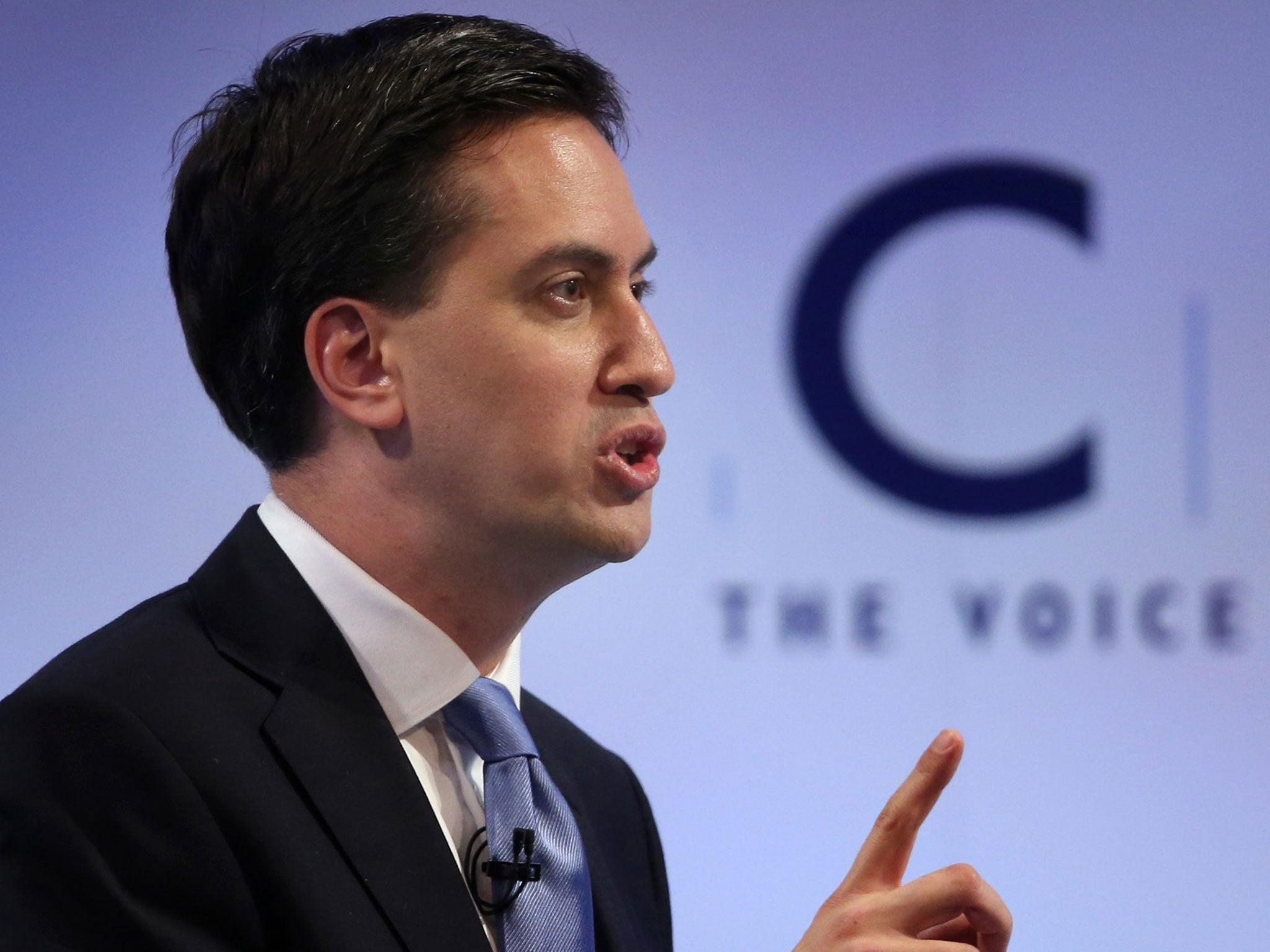Bravo, Ed Miliband! But who'll pay for the election now?
It takes an unusual form of political principle to say no to £9m a year


John Smith didn't do it, Tony Blair didn't do it, Gordon Brown didn't do it. They all thought about it and decided not to. But Ed Miliband has gone and done it. This is either very brave or very foolish.
I mean breaking the link between the trade unions and the Labour Party. We Blairites are not calling it that, of course, because we are trying to be helpful. And also because we have developed a reflex over the past 33 years. Ever since 1980, my side of the party, the right wing, the wing closest to the people, the one which wins elections, has been accused of wanting to "break the union link". So we have become used to rephrasing it as Labour's link with trade unionists rather than with trade unions, by which we mean their unrepresentative, block-vote-wielding bosses.
Imagine our confusion, then, when the leader of the Labour Party, the wrong Miliband, said last week: "The Labour Party needs to have a relationship with trade unionists and not just the unions." No wonder we took a while to realise that breaking the link was precisely what he had decided to do.
This is a story that goes back to the election of Michael Foot as leader in 1980. James Callaghan resigned so that the choice of his successor would be made by Labour MPs alone, pre-empting a new system: an electoral college, in which the trade unions had a 40 per cent share. The new system was immediately discredited when Denis Healey narrowly beat Tony Benn as deputy leader in 1981, because some union general secretaries cast votes for Benn on behalf of notional millions of members, when opinion polls told us that those members preferred Healey. Thus the long fight-back of the Labour right began.
The story of Ed Miliband's speech last week began, however, 12 years later, in 1992. One of the arbitrary consequences of the ERM crisis that year was the appointment of a Labour frontbencher called Tony Blair to a working party set up by John Smith, the Labour leader, to review the union link. The vacancy was created by the sudden departure of Bryan Gould, Labour's leading Eurosceptic, who protested at Smith's declaration that the ERM crisis confirmed Labour's support for a single European currency. Gould has been proved comprehensively right about that, and Smith wrong, but that is not the point of this part of the story.
The point is that Blair saved the working party from settling comfortably into a sofa of warm fudge, and fought with bravery and skill for democratic reforms under the heading of "one member, one vote". Smith then with even more bravery and skill forced the union bosses to accept the changes. One change that was considered by the working party, however, and not adopted, was what Miliband proposed last week: that trade union members who contribute to Labour funds should make a positive decision to do so, rather than being merely entitled to opt out.
The crucial sentence in Miliband's speech was this: "It just doesn't make sense for anyone to be affiliated to a political party unless they have chosen to do so." How utterly right, reasonable and Blairite. And yet Smith, Blair and Brown never did it. Blair considered it again when he became leader and cut the trade union vote at Labour's conference from 70 per cent to 50 per cent. Brown thought about it for his "first 100 days" programme when he became prime minister. But neither of them did it, for the simple reason that the £3 a year from three million trade unionists is Labour's most reliable income stream. It is an indefensible form of inertia selling, but it takes an unusual form of political principle to say no to a guaranteed annual income of £9m.
That is why we Blairites are in awe of what Miliband has done. It is, as Blair himself said last week, something he should have done himself. It is absolutely right. It will, once the consequences work through, complete the democratic reforms begun by Smith 20 years ago. If union members have a direct relationship with the Labour Party, the power of the union bosses in the party is broken. The party won't have to haggle over its policy platform with them; the 50 per cent vote at party conference will go; and the union machines won't be able unfairly to organise members' votes in leadership elections.
All this, you will notice, has nothing to do with the stramash over the Labour candidate selection in Falkirk. Labour candidates are already chosen by party members, one member, one vote. What happened in Falkirk was no more than the usual accusations of sharp practice in any hard-fought battle between the party's left and right.
Even more Blairite of Miliband, therefore, to use the Unite ruling faction's overreach in Falkirk as a pretext to launch the last phase of the modernisers' master plan. It was so Blairite that it left David Cameron unexpectedly floundering at Prime Minister's Questions, because Miliband was liberated to take the fight to Tory MPs' second jobs and capping big Tory donations.
Most Blairite of all is that Miliband himself can have no idea how he is going to fight an election campaign with no money against a Tory party that looks richer than ever.

Join our commenting forum
Join thought-provoking conversations, follow other Independent readers and see their replies